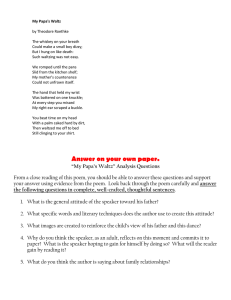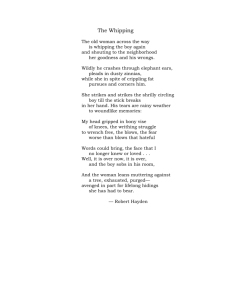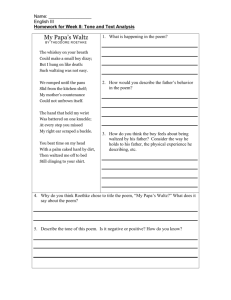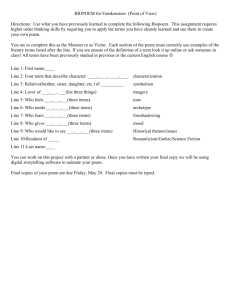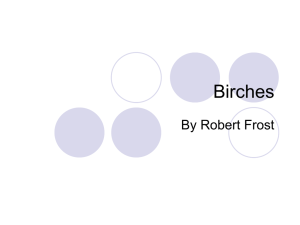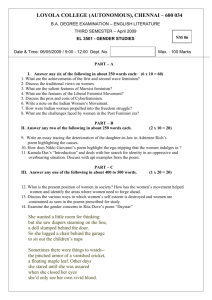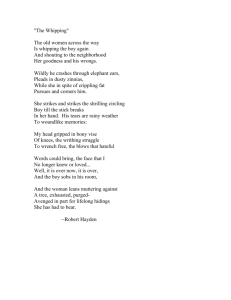My Papa`s Waltz
advertisement
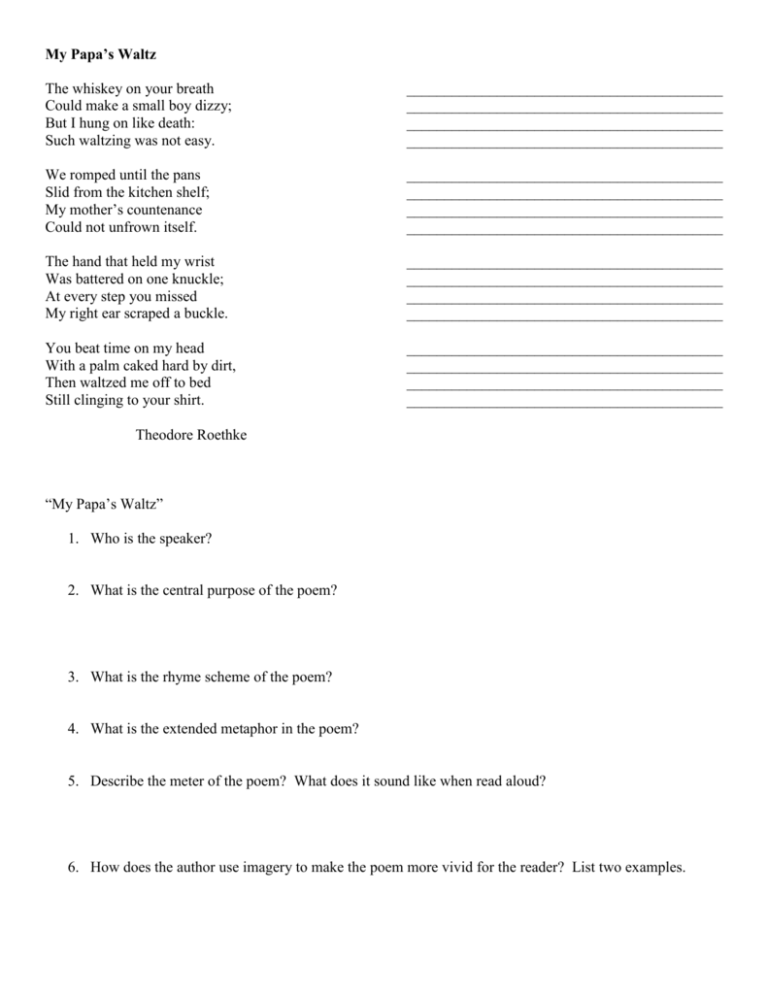
My Papa’s Waltz The whiskey on your breath Could make a small boy dizzy; But I hung on like death: Such waltzing was not easy. __________________________________________ __________________________________________ __________________________________________ __________________________________________ We romped until the pans Slid from the kitchen shelf; My mother’s countenance Could not unfrown itself. __________________________________________ __________________________________________ __________________________________________ __________________________________________ The hand that held my wrist Was battered on one knuckle; At every step you missed My right ear scraped a buckle. __________________________________________ __________________________________________ __________________________________________ __________________________________________ You beat time on my head With a palm caked hard by dirt, Then waltzed me off to bed Still clinging to your shirt. __________________________________________ __________________________________________ __________________________________________ __________________________________________ Theodore Roethke “My Papa’s Waltz” 1. Who is the speaker? 2. What is the central purpose of the poem? 3. What is the rhyme scheme of the poem? 4. What is the extended metaphor in the poem? 5. Describe the meter of the poem? What does it sound like when read aloud? 6. How does the author use imagery to make the poem more vivid for the reader? List two examples. The Whipping The old woman across the way Is whipping the boy again And shouting to the neighborhood Her goodness and his wrongs. Wildly he crashes through elephant ears, Pleads in dusty zinnias, While she in spite of crippling fat Pursues and corners him. She strikes and strikes the shrilly circling Boy till the stick breaks In her hand. His tears are rainy weather To woundlike memories: My head gripped in bony vise Of knees, the writhing struggle To wrench free, the blows, the fear Worse than blows that hateful Words could bring, the face that I No longer know or loved… Well, it is over now, it is over, And the boy sobs in his room, And the woman leans muttering against A tree, exhausted, purgedAvenged in part for lifelong hidings She has had to bear. __________________________________________ __________________________________________ __________________________________________ __________________________________________ __________________________________________ __________________________________________ __________________________________________ __________________________________________ __________________________________________ __________________________________________ __________________________________________ __________________________________________ __________________________________________ __________________________________________ __________________________________________ __________________________________________ __________________________________________ __________________________________________ __________________________________________ __________________________________________ __________________________________________ __________________________________________ __________________________________________ __________________________________________ 1. Who is the speaker? 2. What is the central purpose of the poem? 3. List the words and line number(s) of an example of alliteration in the poem? 4. In line 12, what change does the colon signify? 5. What two events are “over” in line 19? 6. How has the old woman “purged” after beating the boy? What “lifelong hidings” might she possess?

